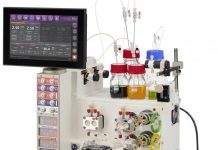Toll processors play a crucial role in supporting chemical – as well as food and drink – manufacturers, by providing additional capacity, helping them overcome bottlenecks and ensuring that deadlines are met. When choosing a partner, manufacturers have to consider factors such as safety and compliance, expertise and capacity, not to mention the ability to overcome disruption. Ben Beattie, Manager of Forbeats, discusses how toll processors put these vital requirements into place for a reliable end-to-end solution.
Safety first
Safety is paramount in the chemical industry and covers every aspect from handling, storage and processing to packing, labelling and transport. For this reason, manufacturers need to be assured that their toll processing partner is up to date with regulatory changes, can safely handle materials and ingredients, and operate compliantly at every stage of their operations.
In today’s regulatory landscape, this means having ISO9001 accreditation together with a comprehensive understanding of up-to-date regulations, such as UK REACH, and the expertise to handle the gamut of ingredients and materials across viscosities and hazard classes.
Having the knowledge and dedicated COMAH facilities to appropriately store, process and transport materials are other important considerations, as is their ability to provide sample analysis and batch traceability, together with required administration. Toll processors that can deliver these requirements not only ensure quality and safety but also have the setup to rapidly scale operations and deliver economy-of-scale savings.
Tackling disruption
The chemical industry faces a range of disruptions that affect day-to-day operations and lead to bottlenecks. Post-Brexit bureaucracy and regulations have been particularly stifling; for example, UK REACH has duplicated regulations and costs for chemical companies.
These problems are compounded by the Russian-Ukrainian war and Red Sea shipping attacks that have disrupted supply routes, increased costs and caused delays.
Toll processing is a proven and effective way to establish a smooth supply chain that runs without disruption. Having the necessary expertise, facilities and equipment already in place, contractors are ideally positioned to carry out manufacturers’ processing requirements while having the flexibility to deliver extra capacity at short notice to fulfil orders quickly and overcome bottlenecks caused by delays.
Importantly, an experienced provider will also have the agility and experience to autonomously undertake the spectrum of processing jobs that chemical manufacturers require, such as the creation of custom formulations and multi-ingredient formula blending. Moreover, with robust quality assurance and safety procedures already in operation, processing will be of high quality and with low waste.
End-to-end solutions
Another key consideration for manufacturers is the breadth of services that a toll processor can offer. To counter disruption and meet deadlines, chemical firms often need contractors that can also deliver warehousing and logistics, import and export clearance, admin and batch traceability, and custom packing, repacking and labelling – for either ongoing or one-time operations.
Crucially, by partnering with an end-to-end service provider, manufacturers can procure the full range of services they need through a single contractor. What’s more, a toll processor’s ability to provide warehouse-ready goods means serious bottlenecks in the multi-step manufacturing process can be avoided. The approach radically streamlines the outsourcing process, saving time, reducing costs and improving efficiency.
While toll processing is a way for manufacturers to solve the problem of disruption, experienced toll processors are proficient problem-solvers themselves. For instance, they will implement stock control, order forecasting, and process and cost optimisation to mitigate its impact. With decades of experience, they will also have a cross-section of contacts across various sectors and will have forged trusted relationships with allied businesses, including those with BRC accreditation, to establish trusted and extended supply networks.
Aside from using real-time surplus goods databases to swiftly acquire materials and ingredients affected by shortages and delays, these networks allow toll processors to procure additional services that broaden their capabilities and capacity. The advantage for manufacturers is that contractors with these extensive networks are ideally positioned to react to demand quickly: they have the setup required to effectively overcome shortages, plan production programmes and deliver end-to-end solutions even during periods of disruption.
For chemical manufacturers, partnering with an experienced toll processor is an effective means to counter the disruptive challenges facing these important industries. With the experience and facilities to deliver agile, full-service, end-to-end solutions, a toll processor offers a cost-effective, high-quality way to ensure a smooth supply chain where bottlenecks are overcome, deadlines are met, and safety is assured.









